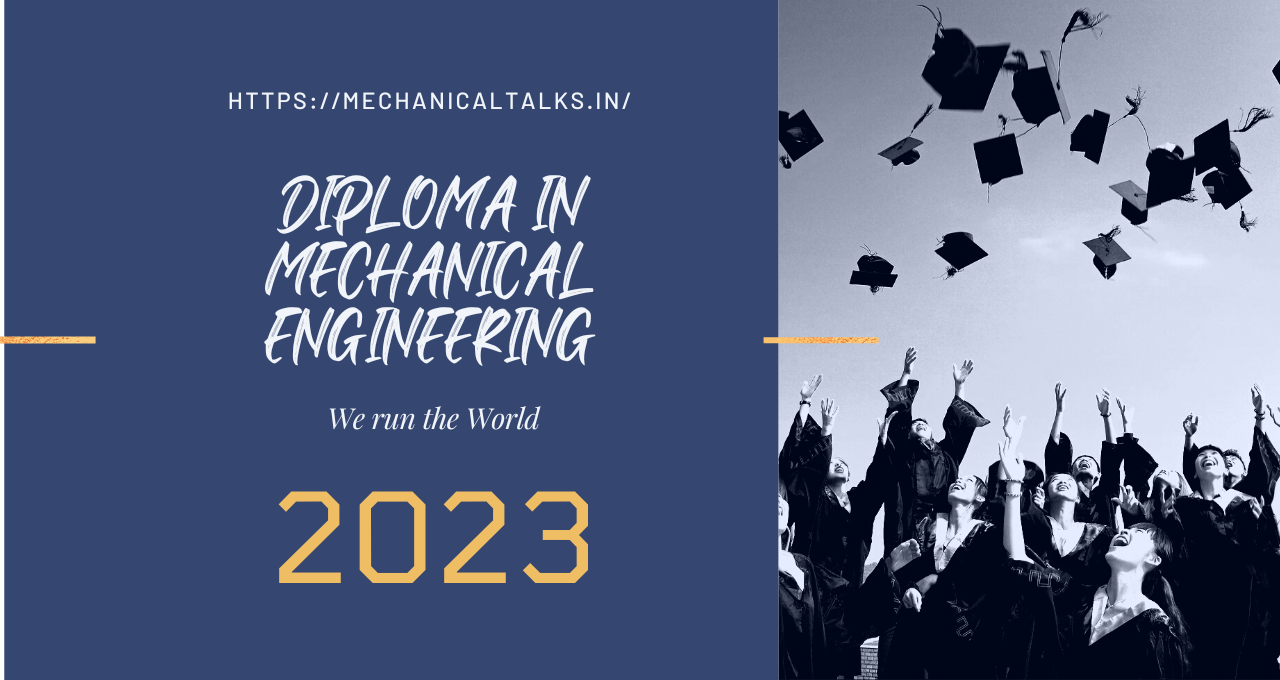Lorem ipsum dolor sit amet, consectetur adipiscing elit, sed do eiusmod tempor incididunt USD-482449908 ut labore et dolore magna aliqua. Ut enim ad minim veniam, quis nostrud exercitation ullamco laboris nisi ut aliquip ex ea commodo consequat.
Diploma in Mechanical Engineering is a three-year program that provides students with a solid foundation in the principles and practices of mechanical engineering. This field of study covers a wide range of topics, including the design, development, and maintenance of mechanical systems, as well as the application of mathematical and scientific principles to solve engineering problems.
The curriculum for a diploma in mechanical engineering typically includes courses in mathematics, physics, and engineering science, as well as specialized courses in mechanical systems and design. Students will learn about the basic principles of mechanics, thermodynamics, fluid mechanics, and materials science, as well as the use of computer-aided design (CAD) software and other tools for creating and analyzing mechanical systems.
In addition to traditional classroom instruction, students in a diploma in mechanical engineering program will also have the opportunity to gain hands-on experience through laboratory work and internships. These practical experiences will allow students to apply the theoretical concepts they have learned to real-world situations, and will help them to develop the skills and knowledge they need to succeed in the field of mechanical engineering.
After completing a diploma in mechanical engineering, graduates will be well-prepared to enter the workforce as entry-level mechanical engineers or to continue their education by pursuing a bachelor’s degree in mechanical engineering or a related field. They will be equipped with the necessary skills and knowledge to design, develop, and maintain a variety of mechanical systems and will be in high demand in a wide range of industries, including manufacturing, construction, transportation, and energy production.
Overall, a diploma in mechanical engineering is an excellent choice for students who are interested in a challenging and rewarding career in the field of engineering, and who want to gain a solid foundation in the principles and practices of mechanical engineering. With the combination of theoretical and practical knowledge, Graduates from this program will be equipped to tackle the challenges of the future and play a key role in shaping the world we live in.
Diploma In Mechanical Engineering Jobs
Table of Contents
Diploma in Mechanical Engineering is a popular program that prepares students for a career in the field of mechanical engineering. Graduates of this program have a wide range of job opportunities available to them, as mechanical engineering is a diverse and in-demand field that touches many industries.
One of the most common career paths for diploma holders in mechanical engineering is to work as a mechanical engineer. Mechanical engineers design, develop, and test mechanical systems and components, such as engines, turbines, and power generators. They may also be involved in the manufacturing and installation of these systems, as well as their maintenance and repair.
Another popular career path for diploma holders in mechanical engineering is to work as a maintenance engineer. Maintenance engineers are responsible for ensuring that mechanical systems and equipment are running efficiently and effectively. They may also be responsible for troubleshooting and repairing any problems that arise.
Diploma holders in mechanical engineering can also work as quality control engineers. They are responsible for ensuring that products meet the required standards of quality before they are released to the market. They use testing equipment and other tools to evaluate the quality of products, and may also be involved in the development and implementation of quality control systems.
In addition to these traditional roles, diploma holders in mechanical engineering may also find employment in fields such as automotive engineering, aerospace engineering, and industrial engineering. They may also work as consultants, providing expert advice to businesses and organizations on issues related to mechanical engineering.
Overall, diploma holders in mechanical engineering have a wide range of job opportunities available to them. They can work in a variety of industries and can take on a variety of roles. With the right skills, knowledge, and experience, they can excel in this field and contribute to the growth of the economy.
It’s important to note that the job market and job opportunities are subject to change due to various factors such as economic conditions, industry trends, and technology advancements, so it’s always a good idea for diploma holders in mechanical engineering to stay informed about the current job market and to continuously update their skills and knowledge.
Diploma In Mechanical Engineering Syllabus
The syllabus for this program is designed to provide students with a comprehensive understanding of the field, covering a wide range of topics that are essential for a successful career in mechanical engineering.
The core subjects in a Diploma in Mechanical Engineering program include:
- Mathematics: This subject covers topics such as calculus, algebra, and geometry, which are essential for understanding the mathematical principles that underlie mechanical engineering.
- Physics: This subject covers topics such as mechanics, thermodynamics, and fluid mechanics, which are essential for understanding the physical principles that govern the behavior of mechanical systems.
- Engineering Science: This subject covers topics such as materials science, manufacturing processes, and engineering design, which provide students with a broad understanding of the various aspects of mechanical engineering.
- Mechanical Systems and Design: This subject covers topics such as machine design, kinematics, and dynamics of machinery, which are essential for understanding the principles of mechanical systems and their design.
- Computer-Aided Design (CAD): This subject covers the use of computer-aided design software and other tools for creating and analyzing mechanical systems.
In addition to these core subjects, students in a diploma in mechanical engineering program may also take elective courses that provide a more in-depth understanding of specific areas of mechanical engineering, such as automotive engineering, aerospace engineering, or industrial engineering.
Practical work is an important component of a Diploma in Mechanical Engineering program. Students will typically have access to well-equipped laboratories where they can gain hands-on experience working with a variety of mechanical systems and equipment. Additionally, students may also have the opportunity to complete internships, which provide them with valuable practical experience in a real-world setting.
Overall, the syllabus for a Diploma in Mechanical Engineering [PDF] program is designed to provide students with a comprehensive understanding of the field, covering a wide range of topics that are essential for a successful career in mechanical engineering. With a strong foundation in the principles and practices of mechanical engineering, graduates of this program will be well-prepared for a variety of career opportunities in this field.
Diploma In Mechanical Engineering Syllabus in India
| Diploma In Mechanical Engineering Syllabus Semester 1 | Diploma In Mechanical Engineering Syllabus Semester 2 |
| Engineering Mathematics-1 | Engineering Mathematics-2 |
| Engineering Physics-1 | Engineering Physics-2 |
| English | Basic Electrical & Electronics Engineering |
| Engineering Chemistry and Environmental Studies-1 | Engineering Chemistry and Environmental Studies-2 |
| Engineering Mechanics | Strength of Material |
| Engineering Drawing-1 | Physics Lab |
| – | Chemistry Lab |
| – | Engineering Drawing-2 |
| – | Workshop Technology |
| Diploma In Mechanical Engineering Syllabus Semester 3 | Diploma In Mechanical Engineering Syllabus Semester 4 |
| Advanced Strength of Material | Development of Life Skill-II |
| Thermal Engineering-I | Manufacturing Processes II |
| Fundamentals of Electronics | Theory of Machines & Mechanism |
| Manufacturing Processes I | Thermal Engineering-II |
| Engineering Materials | Principles of Electrical Engineering |
| Mechanical Engineering Drawing | Professional Practice-II |
| Professional Practice-I | – |
| Diploma In Mechanical Engineering Syllabus Semester 5 | Diploma In Mechanical Engineering Syllabus Semester 6 |
| Fluid Mechanics & Machinery | Design of M/C Elements |
| Advanced Manufacturing Processes | Industrial Management |
| Measurement & Control | Fluid Power |
| Power Engineering | Production Management |
| Industrial Project & Entrepreneurship | Elective II (any one): Refrigeration & Air-Conditioning, CAD-CAM & Automation, Material Handling Systems, Alternate Energy Sources & Management |
| Computer Programming | Project |
| Professional Practice-III | Professional Practice-IV |
| Elective I (any one): Automobile Engineering, Power Plant Engineering, Tool Engineering, Mechatronics | General Viva |
Diploma In Mechanical Engineering Private Jobs
A Diploma in Mechanical Engineering opens up a wide range of job opportunities for graduates, including private sector jobs in India. Some of the most common private sector jobs for diploma holders in mechanical engineering include:
- Mechanical Engineer: Mechanical engineers design, develop, and test mechanical systems and components, such as engines, turbines, and power generators. They may work for private manufacturing companies, construction firms, or consulting firms.
- Maintenance Engineer: Maintenance engineers are responsible for ensuring that mechanical systems and equipment are running efficiently and effectively. They may work for private manufacturing companies, construction firms, or consulting firms.
- Quality Control Engineer: Quality control engineers are responsible for ensuring that products meet the required standards of quality before they are released to the market. They may work for private manufacturing companies, construction firms, or consulting firms.
- Automotive Engineer: Automotive engineers design and develop vehicles and their components. They may work for private automotive companies or consulting firms.
- Aerospace Engineer: Aerospace engineers design, develop and test aircraft and spacecraft. They may work for private aerospace companies or consulting firms.
- Industrial Engineer: Industrial engineers use engineering principles to improve the efficiency of industrial processes and systems. They may work for private manufacturing companies, construction firms, or consulting firms.
- Sales Engineer: Sales engineers provide technical support to sales teams and help clients find the best solutions for their needs. They may work for private manufacturing companies, construction firms, or consulting firms
- Service Engineer: Service engineers are responsible for servicing, repairing, and installing mechanical systems and equipment. They may work for private manufacturing companies, construction firms, or consulting firms.
In addition to these common private sector jobs, diploma holders in mechanical engineering may also find employment in other fields such as power plants, oil and gas, refrigeration and air conditioning and many more. It’s important to note that job opportunities and salaries can vary depending on the specific industry, location, and the level of experience and skills of the candidate.
Is Diploma Equal to 12th?

In India, a diploma is not considered equivalent to a 12th grade or high school certificate.
A 12th grade or high school certificate, also known as the Secondary School Leaving Certificate (SSLC), is awarded to students who have completed the 10+2 years of schooling and passed the necessary exams to graduate from secondary school in India. This typically includes a broad range of subjects such as mathematics, science, English, social studies, and electives. It is considered as the minimum educational qualification for many jobs and further education opportunities in India.
A diploma, on the other hand, is a post-secondary education program that typically takes 2-3 years to complete. It is more specialized than a high school certificate and focuses on a specific field of study such as engineering, technology, business, or healthcare. It is not considered as an equivalent to a high school certificate but is considered as a vocational qualification that provides the specialized skills and knowledge required to enter a specific field or profession in India.
It’s important to note that the education system and the level of education can vary by state and region in India, so the comparison between diploma and 12th grade certificate may vary depending on the context and the specific institution. It’s always a good idea to check with the relevant authorities or educational institutions in your state or region for more information.
